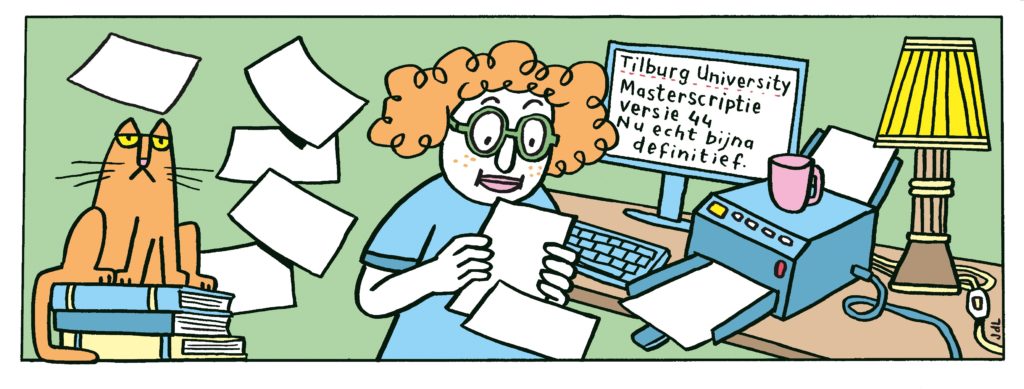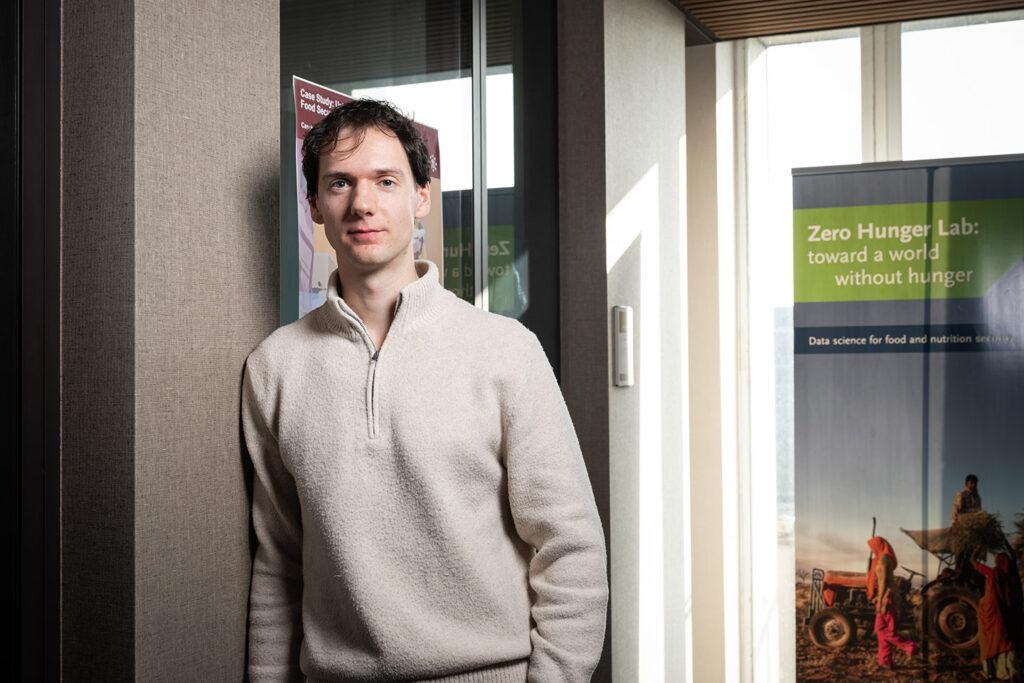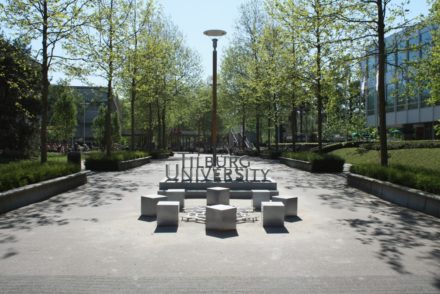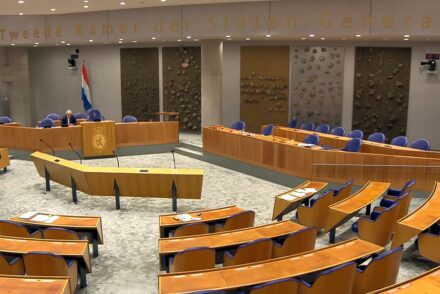‘When you have a lot of mouths to feed, it’s not about how a potato tastes’
Should a potato taste good or should it mainly yield a lot? For his master’s thesis, former econometrics student Rein Lommerse investigated which crops are most appreciated by farmers worldwide. ‘That way, we can offer farmers in poor countries the most suitable seeds.’

What is your master’s thesis about?
‘For my thesis, I collaborated with the Zero Hunger Lab, a transdisciplinary research institute at Tilburg University where researchers use data science and mathematical optimization to reduce hunger in the world.
‘I investigated how farmers in different countries, such as Nigeria, India and Guatemala, assess different seeds from breeders. Farmers were given three different varieties of a crop, such as sweet potatoes.
‘The farmers planted these seeds and observed the growth process. At the end of the cultivation, they assessed which variety had the highest yield, which tasted the best and which looked the best. Based on these properties, they gave a final assessment of which variety they generally found the best.
‘My task was to analyze which of these factors – for example: taste, yield or appearance – had the greatest influence on that final assessment. With this information, the Zero Hunger Lab can help farmers choose the right seeds, so that their harvest optimally matches their preferences.’
How did you approach that?
‘The whole process – from distributing the seeds to the farmers to growing and evaluating the crops – had already been completed. So the data had already been collected, and my task was to investigate the relationships within that data. I wondered how I could mathematically determine which properties the farmers considered most important in the seeds.
‘A mathematical model that provides insight into the relationships between seed properties had not yet been developed. For that, I delved into existing mathematical methods that could help me answer this question.
‘During my research, I came across several methods that were potentially suitable. There is simply no one fixed path to the answer. Ultimately, you choose a method that you expect to provide the right insights, and then you test it out.
‘Sometimes it turns out to be the right approach and you come a step closer to the solution. But sometimes it doesn’t work as hoped, and then you have to go back to the ‘math table’ and try another method. It was really a process of experimenting, learning and trying again.
‘I was fortunate enough to travel to the South of France to work with Alliance Bioversity International, a global research and development organization committed to the conservation and utilization of biodiversity in agriculture and forests.

‘There I had the opportunity to brainstorm with researchers and scientists about my thesis research. I learned a lot about their field and way of thinking, and their agricultural expertise was essential to substantiate my thesis well.’
What did your research reveal?
‘That ‘yield’, as I actually expected, was the most important factor for a positive final assessment. This makes sense, because for farmers in countries where poverty and hunger prevail, a high yield is crucial. After all, they have to feed as many people as possible. In such situations, the taste and appearance of the sweet potato are much less important.
‘Nevertheless, the priorities differed per region. For example, a farmer in a desert area attaches great importance to drought resistance, while a farmer in a rainy area needs a crop that is resistant to moisture. That is why I also investigated whether it was possible to group farmers based on their specific needs.
‘This allowed us to better map out the preferences of different groups – for example farmers in dry versus wet areas – and offer them the most suitable seeds. In this way, all farmers can get crops that optimally match their circumstances and needs.’
What was it like for you to conduct research on hunger and poverty from an affluent, Western background?
‘It is almost unimaginable how many people worldwide live in poverty and are hungry. In the Netherlands, we are extremely privileged with supermarkets on every street corner that are fully stocked with food. That is precisely why it was valuable to contribute to helping farmers with my research, so that they can better tailor their harvest to their needs and circumstances.’
Master thesis
A literature study, experimenting in the lab or still working with SPSS? The students of Tilburg University write the most diverse theses. In the Master’s thesis section, Univers highlights one each month.
Author: Rein Lommerse
Title: Unraveling Trait Interactions in Crop Varieties: A Network Analysis
Supervisor: Marleen Balvert
Grade: 8.5
Masters: Business Analytics and Operations Research







